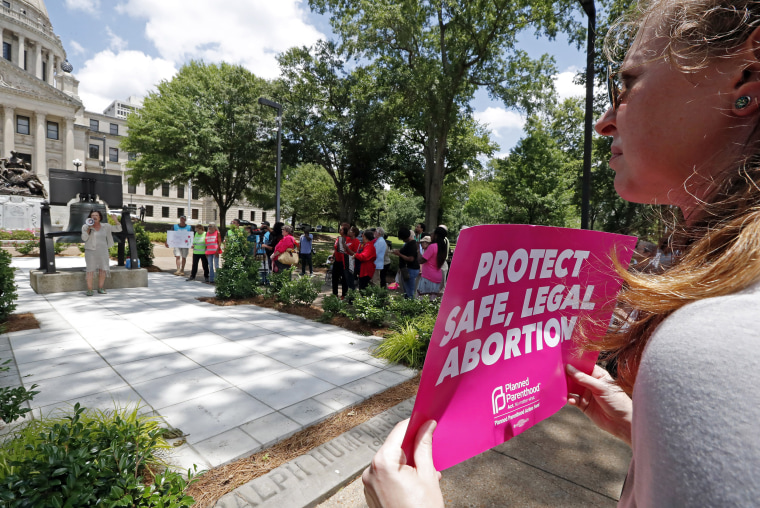A federal judge on Friday issued a preliminary injunction blocking Mississippi's fetal heartbeat anti-abortion law from going into effect, saying it infringes on women's health care rights.
“Here we go again. Mississippi has passed another law banning abortions prior to viability,” Judge Carlton Reeves wrote in his order.
"By banning abortions after the detection of a fetal heartbeat, SB 226 prevents a woman’s free choice, which is central to personal dignity and autonomy,” he continued.
The Mississippi ban prohibited abortions after the detection of a fetal heartbeat, or around six weeks, which is before many women might know they are pregnant. Gov. Phil Bryant signed the bill into law in March.
The lawsuit was filed by the Jackson Women's Health Organization against Thomas Dobbs, the state health officer of Mississippi.
Reeves ruled last year that Mississippi's 15-week abortion ban was unconstitutional, The Associated Press reported. Mississippi is appealing that ruling, and is likely to appeal this one, as well.
The judge's ruling comes as dozens of conservative states across the country have passed or proposed bills that would place strict limitations on abortion. Anti-abortion advocates have said that they hope the bills, which have prompted swift legal challenges, will ultimately lead to the U.S. Supreme Court overturning the landmark 1973 Roe v. Wade decision, which legalized abortion nationwide.
Under the Mississippi law, doctors could have their medical licenses revoked if they perform the procedure after a fetal heartbeat is detected. Though the law does provide an exception if the pregnancy endangers the life of the mother, it does not provide an exception in cases of rape or incest.
The Republican governors of Kentucky, Ohio and Georgia have signed similar bans on abortion once a fetal heartbeat is detected. On Friday, Missouri's Republican Gov. Mike L. Parson signed legislation banning abortions at eight weeks of pregnancy with an exception for medical emergencies, but not for rape or incest.
Also on Friday, Planned Parenthood and the American Civil Liberties Union filed a federal lawsuit over Alabama's near-total abortion ban that makes performing an abortion a felony with little to no exceptions. The law, signed by GOP Gov. Kay Ivey on May 15, is the most restrictive in the nation.
“The Alabama Legislature has been pushing abortion care further and further out of reach for years with medically unnecessary and politically-motivated restrictions, and this extreme abortion ban shows us just how far they’ll go to push their anti-abortion agenda,” Alexa Kolbi-Molinas, an ACLU Reproductive Freedom Project attorney, said in a press release.

